SUMMARY
This is AI generated summarization, which may have errors. For context, always refer to the full article.
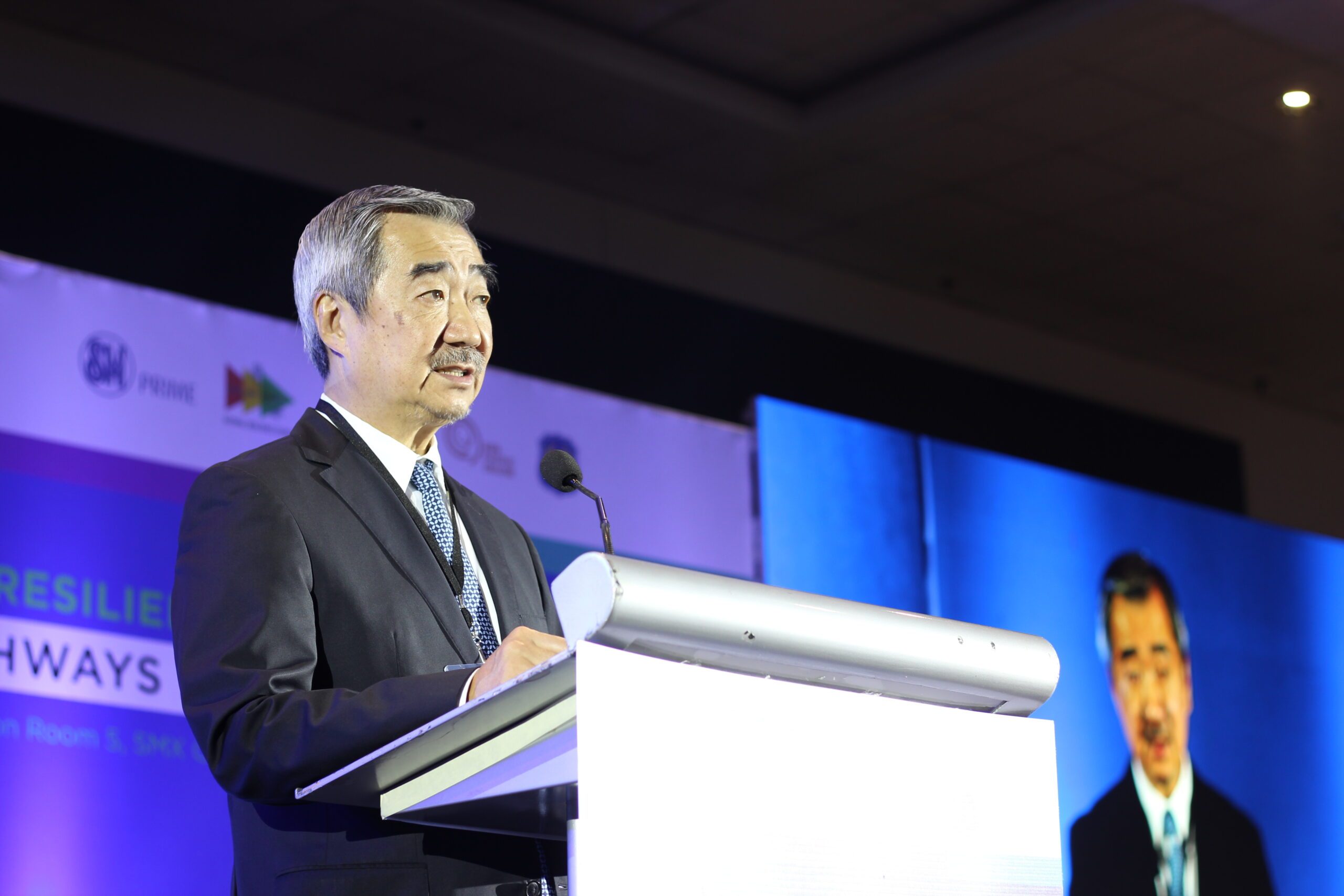
MANILA, Philippines – “Disaster risk reduction cuts across different aspects and sectors of development, and action is urgent. Clearly, we all want to be part of creating solutions,” said Hans Sy, SM Prime Holdings President and National Resilience Council (NRC) Executive Committee Co-Chair for the Private Sector, as he addressed the crowd.
“Everyone, your attendance today shows your commitment to disaster risk reduction (DRR).”
On November 12, ARISE Philippines held its 8th Top Leaders Forum at the SMX Convention Center in Pasay. Carrying the theme “From Risk to Resilience: Forging Pathways and Milestones,” the conference gathered senior government officials, top-level executives from the private sector, local chief executives, and even students from across the Philippines to discuss the country’s status on disaster risk reduction, preparedness, resiliency, and sustainability.
Stories, disasters, and partnerships
To begin the sessions of the day, industry leaders took center stage to share special messages. One of them was the 4th District of Leyte Chairperson and House Committee Chairperson of Disaster Management Lucy Torres-Gomez.
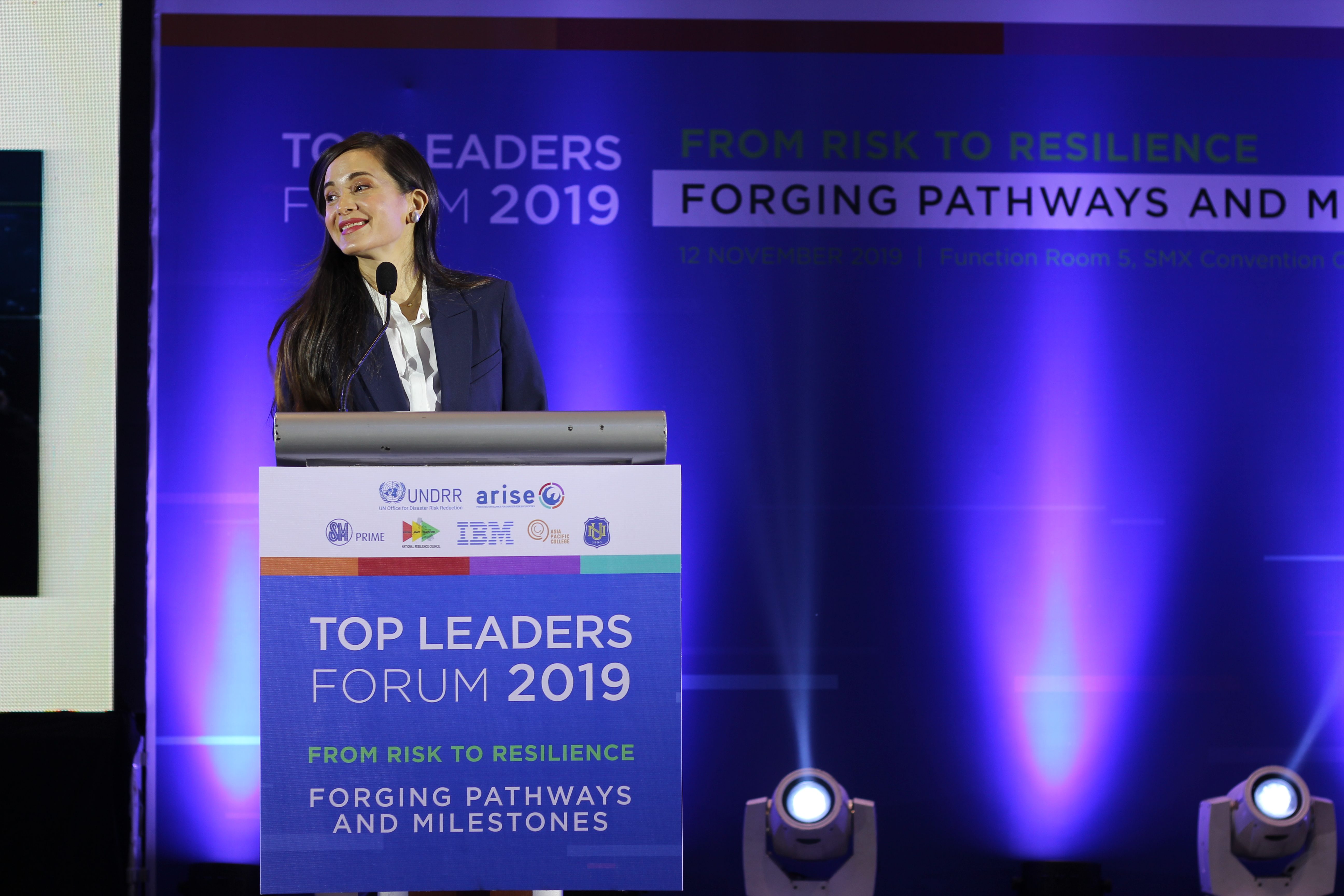
“Disasters have a way of connecting people, even perfect strangers ‘Where were you during Ondoy,’ ‘Where were you when Yolanda hit?’” the representative opened.
“All of us have our own personal stories to tell, but I do have one hope: that these stories we tell today remain in the past. Because there will be no more tragedies to recount – typhoons yes, but traumatic memories no more. I hope these stories will teach the future not just to survive but to thrive.”
Rep. Torres-Gomez posited that the best way to overcome these problems is to arm cities with 1) resilience, the ability to bounce back from disasters; and 2) adaptation, developing infrastructures that protect and deflect the effects of disasters on both people and disasters.
Adjacent to Rep. Torres-Gomez’s speech was that of Sandra Wu’s, Chairperson and CEO Kokusai Kogyo Co.
According to her, in building more prepared cities and municipalities, innovation is integral. The private sector, she says, is particularly strong when it comes to innovation. The public sector can tap into this strength of private organizations via public-private partnerships.
An hour with the champions
After the special messages, champions from the private sector took the stage to share their milestones when it came to disaster risk reduction and management.
Moderated by NRC President Antonia Yulo Loyzaga, the panel was composed of Unilever Philippines Chairman Benjie Yap, Maynilad CEO Ramoncito Fernandez, IBM Philippines Country President and General Manager Aileen Judan-Jiao, San Miguel Properties Inc. Project Lead Cecile Ang, Jollibee Food Group Executive Director Giselle Tiongson, and Aboitiz Foundation First VP and COO Maribeth Marasigan.
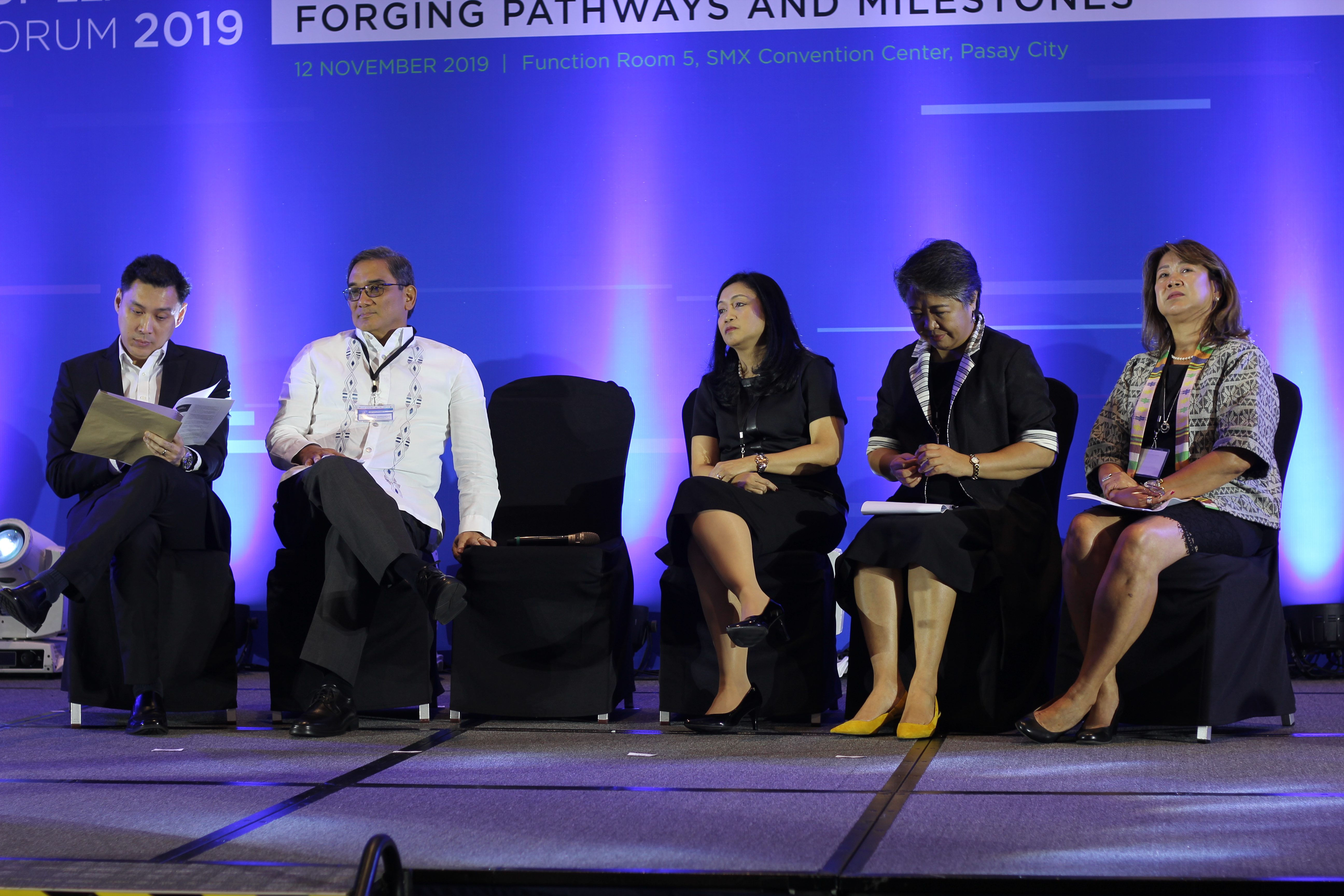
Unilever Philippines’ Benjie Yap emphasized how, in Unilever, they are shifting their efforts to be more end-to-end and holistic when it came to disasters. This means covering three phases in their efforts: 1) preparedness, 2) relief, and 3) rehabilitation.
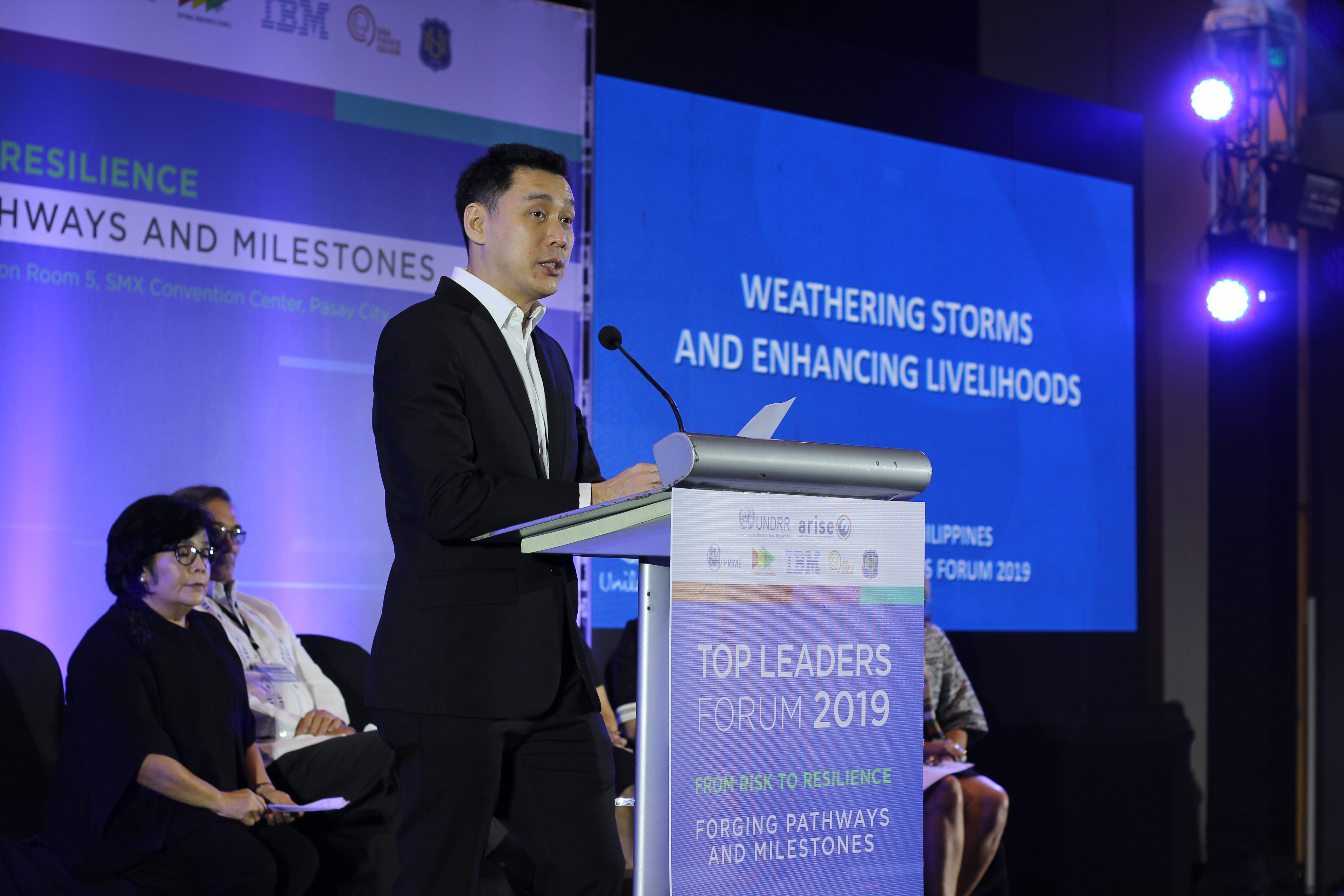
These areas are covered in their Unilever “Gets Involved and Enable Sustainability” (Unilever GIVES) program, wherein “employees and partners are engaged to contribute volunteer hours and expertise on initiatives aligned with sustainable living.”
IBM, on the other hand, discussed another side of disaster preparedness. Specifically, man-made attacks, such as cyberterrorism.
Lessons from the LGUs
After representatives of the private sector, local government unit heads got the chance to share their best practices.
In attendance were: Governor Albert Garcia of Bataan, Mayor Oscar S. Moreno of Cagayan de Oro, Mayor Nelson Legacion of Naga, Mayor Jerry Trenas of Iloilo, Mayor Maria Isabelle Climaco of Zamboanga, and Mayor Richard Gomez of Ormoc.
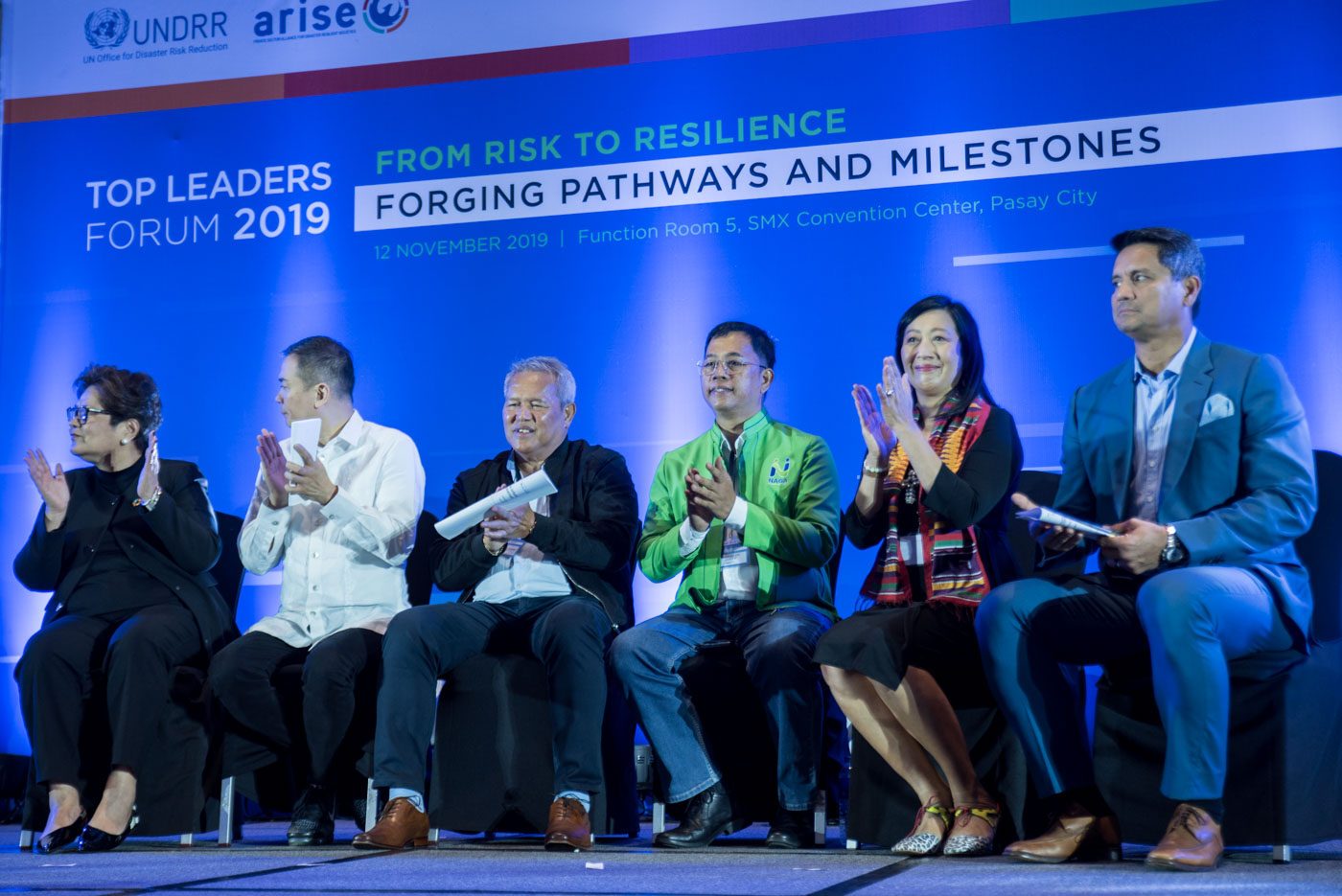
Iloilo and Naga recently signed a memorandum of agreement, earlier this year, to be part of the NRC’s Adopt-a-City program.
At the heart of the program are public-private partnerships between local government units (LGUs) and corporations. The goal is to promote disaster resilience via resource-sharing and the establishment of prevention systems, especially during the typhoon season.
Knowledge into policy and action
Ending the panels was a discussion on how to synergize the innovations from the private sector and how different LGUs enact them into action.
Former Undersecretary of the National Disaster Risk Reduction and Management Council (NDRRMC) VADM Alexander Pama moderated the panel composed of: current NDRRMC Undersecretary Ricardo Jalad, Zuellig Family Foundation EVP Austere A. Panadero, Ateneo de Manila President and NRC Vice-Chair Fr. Jett Villarin, and Stockholm Environment Institute Senior Research Fellow Dr. Bernadette P. Resurreccion.
“Knowledge doesn’t always lead into action,” said Fr. Villarin, jolting the audience. “We need to restructure everything.”
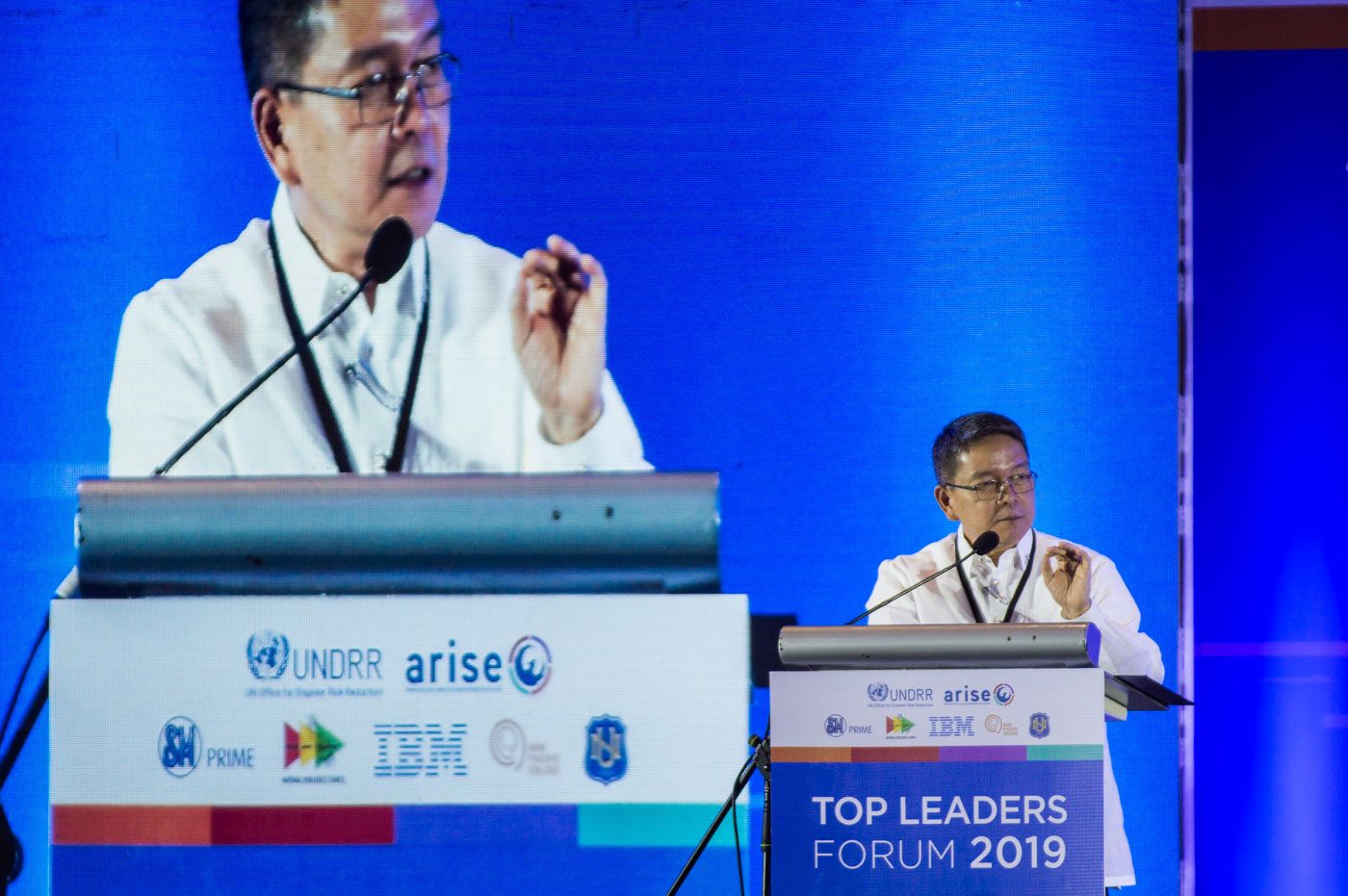 Fr. Villarin brought up how Al Gore had to wake people up via his documentary An Inconvenient Truth. He said maybe the approach of this documentary holds the key to transforming knowledge into action. And surprisingly, it’s by letting facts take a backseat.
Fr. Villarin brought up how Al Gore had to wake people up via his documentary An Inconvenient Truth. He said maybe the approach of this documentary holds the key to transforming knowledge into action. And surprisingly, it’s by letting facts take a backseat.
Fr. Villarin said we need to use emotions as the gateway to the facts. We need to alarm people by speaking to their hearts. Then present the data that lead to policies in action.
Involving the youth
The day’s events ended with a contest that involved the sector, which has most at stake in these changing times: the youth.
Various student groups were invited to pitch their solutions to climate change and the pressing disaster-related problems of their own cities/provinces.
Dubbed the Young Leaders for Resilience Program, before the pitching, the students underwent a Design Thinking Workshop led by IBM Philippines and co-facilitated by the Asia Pacific College (APC) and National University.
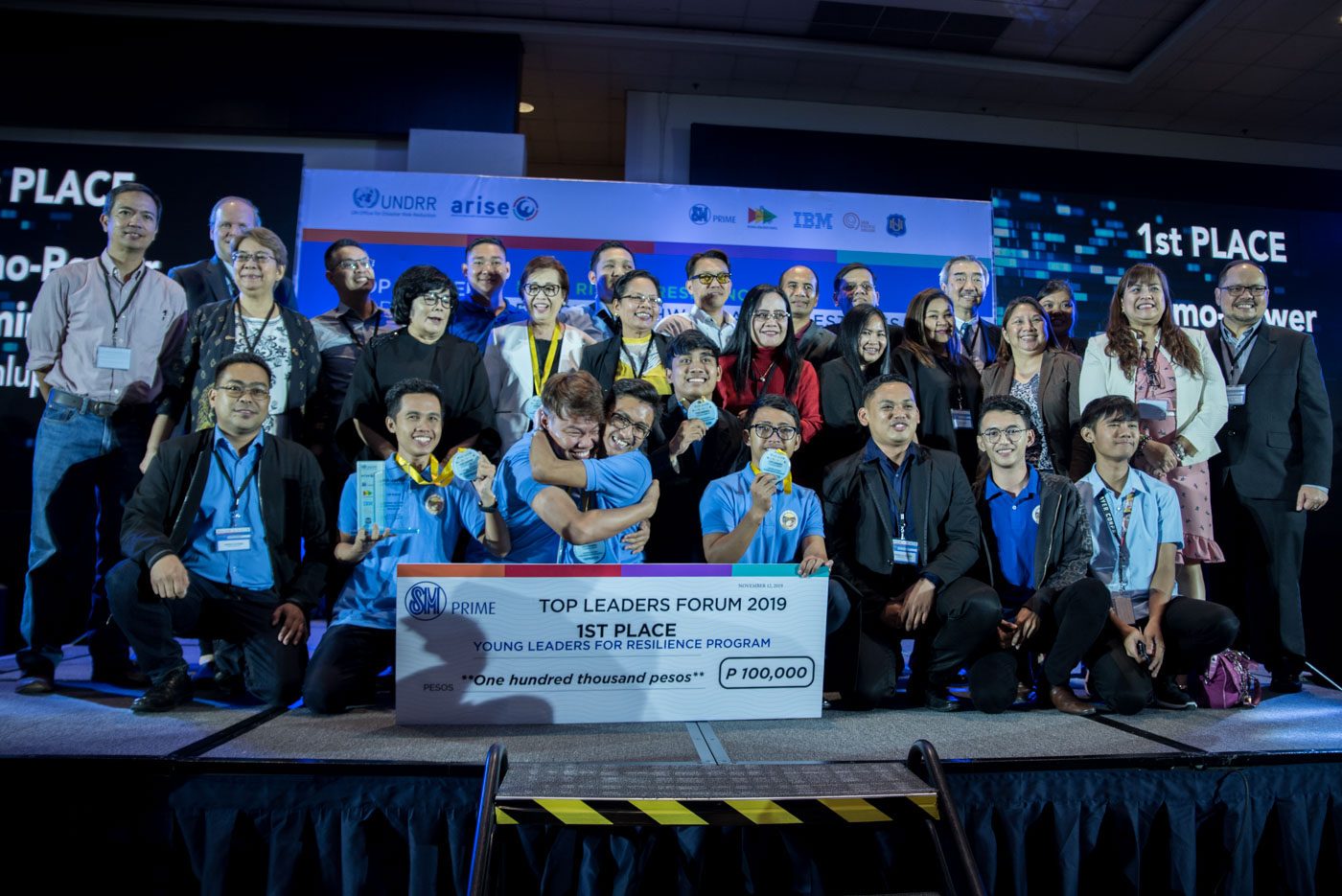
Students from the Pamantasang Lungsod ng Muntinlupa won first place with their “Seismo Power Terminator” – a mechanism to prevent fires during earthquakes. Second place went to “Project Oro,” an app designed by students of Xavier University – Ateneo de Cagayan. And third place went to students of Camarines Sur Polytechnic Colleges with their tri-button emergency box.
“The youth have a wealth of knowledge that we can put on the table…This year we enlisted their help through [this program],” said VADM Alexander Pama, who was also behind the initiative. “Disaster resilience should involve multiple stakeholders and have a ‘whole nation’ approach. You know, we are serious when we say that disaster resilience is everybody’s business.” – Rappler.com
Add a comment
How does this make you feel?
There are no comments yet. Add your comment to start the conversation.